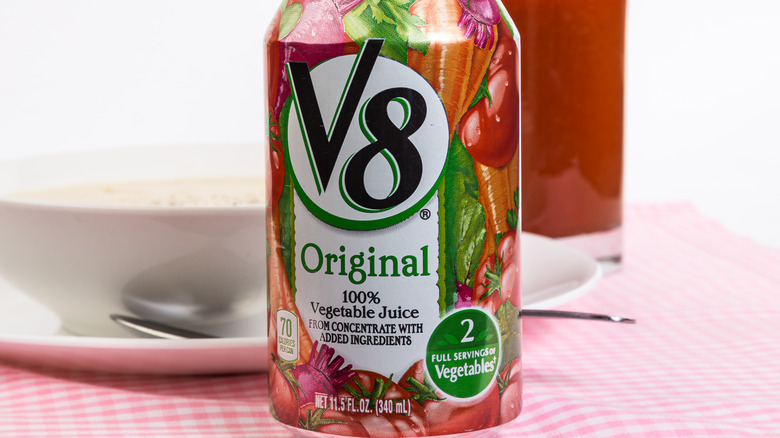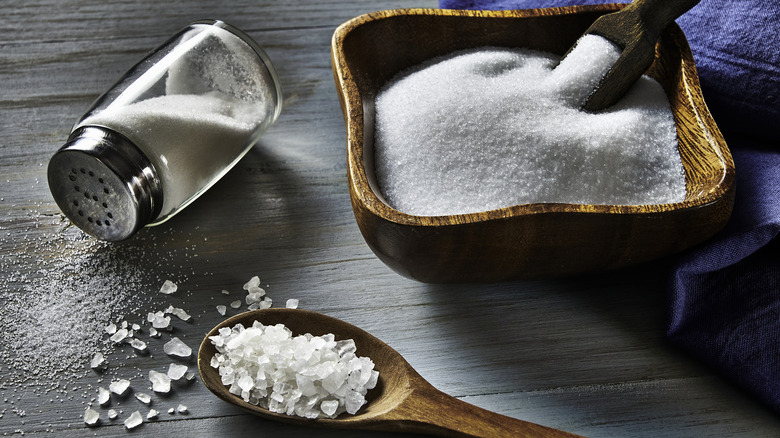
Whether you add salt to your foods or enjoy the salty taste of a good french fry or potato chip, most Americans consume too much sodium in their diets. Excessive sodium can lead to higher blood pressure and an increased risk of heart disease and stroke (via Harvard School of Public Health).
Surprisingly, even if you’ve ditched your salt shaker and avoid salty snacks, many foods and drinks contain sodium to enhance their flavor. Some of these might not taste salty, yet the sodium content in many processed foods could surprise you. Smoked and processed meats are high in sodium, as are some canned foods like ravioli. Quick breads, instant pudding, and salad dressings also have significant sodium content. Even if you’re aiming to boost your vegetable intake, canned vegetables and vegetable juices often have high sodium levels (via UCSF Health).
V8 juice is healthy, but high in sodium

V8 vegetable juice provides 20% of your daily vitamin A and 80% of your vitamin C needs, allowing you to check off two of your daily vegetable servings with each V8 serving. That’s substantial nutrition in a 45-calorie serving. V8 derives its name from the juices of eight vegetables: tomatoes, carrots, celery, beets, parsley, lettuce, watercress, and spinach, ensuring no added sugars. However, note the high sodium content in V8. An 8-ounce serving contains 640 milligrams of sodium, around 28% of the recommended daily upper limit.
If reducing your sodium intake is a goal, consider V8’s low-sodium vegetable juice. It offers the same vitamins A and C as the original, but with just 140 milligrams of sodium, or 20% of the sodium in the original V8. Additionally, the low-sodium version contains 850 milligrams of potassium, which is crucial for maintaining fluid balance within your cells (per Harvard T.H. Chan School of Public Health).
Sodium is good for you in moderation

Salt is not only a popular seasoning but also an effective food preservative. Ancient Egyptians used it to preserve food without refrigeration by removing moisture that could promote bacterial growth. According to the Harvard T.H. Chan School of Public Health, you need about 500 milligrams of sodium daily to support nerve and muscle function. Iodized salt contains iodine, essential for thyroid hormone production. Lacking this mineral can lead to constipation, cognitive issues, fatigue, or cold sensitivity.
Sodium is also vital for maintaining hydration balance. After a salty meal, you might notice water retention. However, issues can arise if you consume too much water without electrolytes like sodium, magnesium, and potassium. Hyponatremia, a condition where your blood sodium levels are too low, often occurs after excessive water intake. Though commonly associated with recreational athletes overhydrating during events, it can also occur if you’re on medications like nonsteroidal anti-inflammatory drugs, antidepressants, or SSRIs, or if you have a low-sodium diet (according to the Korey Stringer Institute). For endurance athletes who lose significant sodium through sweat, V8 might be beneficial (per USA Today).




